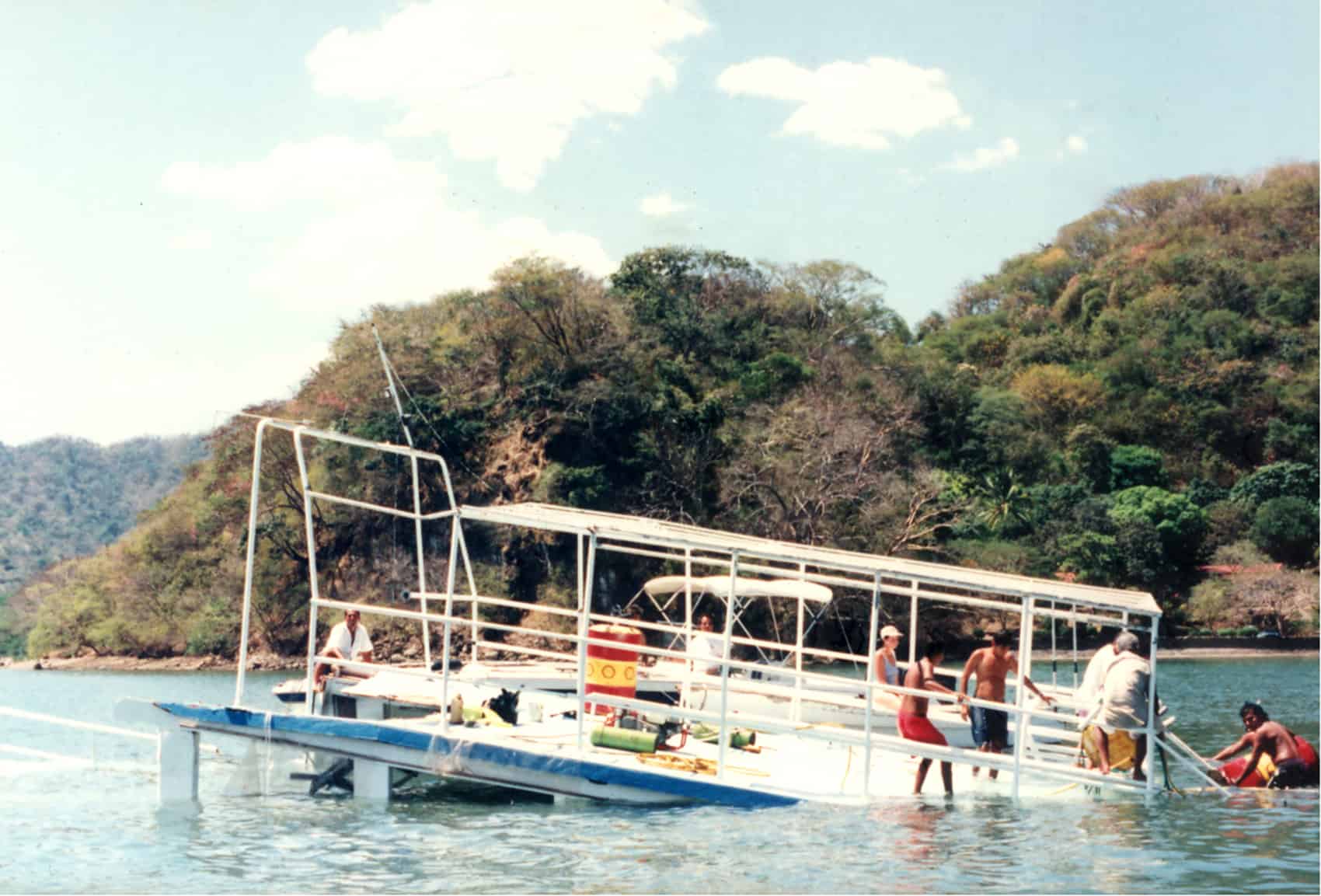Costa Rica’s Casa Presidencial convened a press conference Monday to outline its recommendations to avoid a repeat of the Pura Vida Princess shipwreck that claimed the lives of three foreign tourists on Jan. 8, but the lessons learned from a chillingly similar accident that happened in 1997, when two passengers drowned, have yet to be become law.
In February 1997, the Pacific Princess, another catamaran making a similar day trip across the Gulf of Nicoya to Isla Tortugua, sank, forcing the 54 people on board to abandon ship. A mother and daughter, Cecilia Rodríguez, 48, and Marianella Salas, 20, drowned in the accident, and 20 passengers were taken to the hospital for shock and minor injuries. The Pacific Princess, which also experienced rough seas, ran aground against a rock, piercing its fiberglass-plywood haul in two places. The captain and a clerk at the Port Authority of Puntarenas were both charged with the equivalent of criminal negligence in the accident that April, The Tico Times reported on April 18, 1997.
The Pacific Princess was found to be sailing on an expired permit and had several other violations when it sank in 1997. Most troubling, the vessel’s safety equipment, including life vests and boats, were tied to the ship, making it difficult for passengers to retrieve them. In last week’s accident, the Pura Vida Princess capsized before life vests could be handed out to the 99 passengers on board, according to statements from Casa Presidencial.
After nearly 18 years and at least five deaths related to catamaran accidents, there have yet to be any changes to Costa Rica’s maritime regulations overseeing the industry.
Luis Fernando Coronado, director of the Public Works and Transport Ministry’s (MOPT) Maritime-Port Administration, told The Tico Times in a telephone interview that since the 1997 accident there have not been any updates to rules governing MOPT’s ability to punish private and passenger ships for violating maritime safety and administrative requirements or heeding Coast Guard recommendations. The closest thing to a new change has been the Aquatic Navigation bill (Expediente 18512), which has yet to be passed by the Legislative Assembly after more than two years.
Miguel Madrigal, Puntarenas station chief for the Coast Guard, said that his agency broadcasts daily recommendations for ships before they leave the shore. The station chief said that his station issued a warning advising small vessels to take precautions before going out to sea on Jan. 8, 2015, the day that the Pura Vida Princess sank.
“We issue statements in terms of suggestions, of recommendations, for those who don’t know how to navigate certain seas in certain conditions, but they don’t go beyond recommendations,” Madrigal said.
The Maritime-Port Administration director said that if the Aquatic Navigation bill were law, the Pura Vida Princess would have been banned from leaving port if the Coast Guard determined that conditions were too dangerous, and he noted that the bill includes a specific article on meteorological conditions.
Iván Brenes, president of the National Emergency Commission, said that Costa Rican President Luis Guillermo Solís would push the Aquatic Navigation bill in an extraordinary session of the Legislative Assembly. The bill’s reforms include allowing MOPT to levy economic sanctions against captains and businesses that violate maritime law and require crews to attend basic boat safety courses, including first response, onboard fires, and man-over-board situations. Some 1,200 sailors have taken this boating safety course through the National Training Institute, Coronado said, but the course is not a requirement under current law.
Casa Presidencial also announced that it would seek an international convention for maritime search and rescue operations and the Coast Guard would be available through the country’s emergency 911 service.
Coronado attributed a lack of political will and unfamiliarity with maritime issues on a national scale for holding back reforms. He added: “We hope that with this administration we’ll finally have the support we need.”






